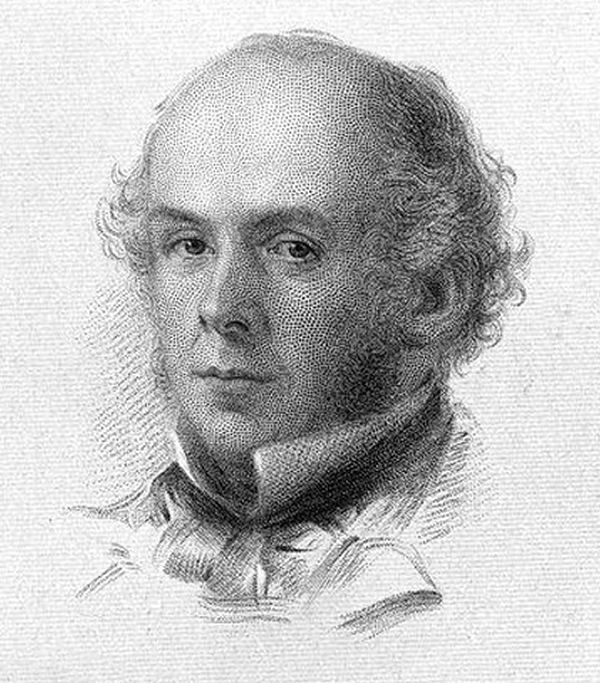Dipsychus, Pt. II, sc. ii.
Arthur Hugh Clough: Cytaty po angielsku
The Higher Courage http://whitewolf.newcastle.edu.au/words/authors/C/CloughArthurHugh/verse/poemsproseremains/highercourage.html, st. 7 (1840).
Say Not the Struggle Nought Availeth http://whitewolf.newcastle.edu.au/words/authors/C/CloughArthurHugh/verse/poemsproseremains/strugglenought.html, st. 1 (1862).
The Bothie of Tober-na-vuolich http://whitewolf.newcastle.edu.au/words/authors/C/CloughArthurHugh/verse/poemsproseremains/bothie_01.html, Pt. IV (1848).
“Thou shalt not covet, but tradition
Approves all forms of competition.”
The Latest Decalogue, l. 19-20.
A Song of Autumn http://whitewolf.newcastle.edu.au/words/authors/C/CloughArthurHugh/verse/poemsproseremains/songautumn.html.
Thesis and Antithesis http://whitewolf.newcastle.edu.au/words/authors/C/CloughArthurHugh/verse/poemsproseremains/antithesis.html, st. 4.
Love, Not Duty http://whitewolf.newcastle.edu.au/words/authors/C/CloughArthurHugh/verse/poemsproseremains/lovenotduty.html, st. 1 (1841).
Parting http://whitewolf.newcastle.edu.au/words/authors/C/CloughArthurHugh/verse/poemsproseremains/parting.html, st. 1.
Qua Cursum Ventus. Compare: "Ships that pass in the night, and speak each other in passing", Henry Wadsworth Longfellow, Tales of a Wayside Inn (1863-1874), Pt. III, The Theologian's Tale: Elizabeth, sec. IV.
“No graven images may be
Worshipped, except the currency.”
The Latest Decalogue http://whitewolf.newcastle.edu.au/words/authors/C/CloughArthurHugh/verse/misc/lastdecalogue.html, l. 3-4 (1862).
Love and Reason http://whitewolf.newcastle.edu.au/words/authors/C/CloughArthurHugh/verse/poemsproseremains/lovereason.html, st. 1 (1844).
In a London Square http://whitewolf.newcastle.edu.au/words/authors/C/CloughArthurHugh/verse/poemsproseremains/londonsquare.html, st. 1.
Where Lies the Land to Which the Ship Would Go? http://rpo.library.utoronto.ca/poem/491.html, st. 1 (1852).
An Incident http://whitewolf.newcastle.edu.au/words/authors/C/CloughArthurHugh/verse/poemsproseremains/incident.html, st. 1 (1836).
“So in the sinful streets, abstracted and alone,
I with my secret self held communing of mine own.”
Easter Day II http://whitewolf.newcastle.edu.au/words/authors/C/CloughArthurHugh/verse/poemsproseremains/easterdayii.html, l. 1-2 (1849).
Thoughts of Home http://whitewolf.newcastle.edu.au/words/authors/C/CloughArthurHugh/verse/poemsproseremains/thoughtshome.html, st. 1.
“Each for himself is still the rule
We learn it when we go to school—
The devil take the hindmost, O!”
In the Great Metropolis http://whitewolf.newcastle.edu.au/words/authors/C/CloughArthurHugh/verse/poemsproseremains/greatmetropolis.html, st. 1.
Dipsychus http://whitewolf.newcastle.edu.au/words/authors/C/CloughArthurHugh/verse/poemsproseremains/dipsychusprologue.html, Pt. I, sc. v (1862).
Ah! Yet Consider It Again! http://whitewolf.newcastle.edu.au/words/authors/C/CloughArthurHugh/verse/poemsproseremains/considerit.html, st. 4 (1851).
There is No God, the Wicked Sayeth http://whitewolf.newcastle.edu.au/words/authors/C/CloughArthurHugh/verse/misc/wickedsayeth.html, st. 1 (1862).
The Questioning Spirit http://whitewolf.newcastle.edu.au/words/authors/C/CloughArthurHugh/verse/poemsproseremains/questioningspirit.html, st. 2 (1847).
The Thread of Truth http://whitewolf.newcastle.edu.au/words/authors/C/CloughArthurHugh/verse/misc/threadtruth.html (1839).
Youth and Age http://whitewolf.newcastle.edu.au/words/authors/C/CloughArthurHugh/verse/poemsproseremains/youthage.html, st. 1.
